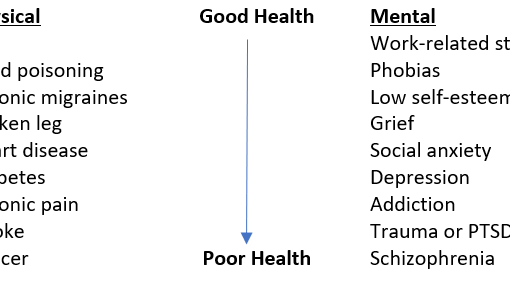Why Do We Fail to Address Our Most Important Issues?
When a person’s car is running poorly, stuttering and making awful noises, they rarely say, “Oh well, there’s nothing I can do about it,” and continue to drive the car. They make fixing it a priority. Someone with a persistent pain in their abdomen will typically see a doctor in short order. Yet, when people feel emotionally stuck, such as with a relationship problem, significant stress, increased anxiety, insomnia, increased anger or depressed mood, they are reluctant to seek help- if they consider seeking help at all. 
This is the paradox. Many people are quick to attend to tangible physical problems, ensuring that things run smoothly, but are reluctant to pay attention to the intangibles like mood, relationships, stress, self-esteem and satisfaction with life. Yet, it is frequently these intangibles that are more significant and important.
There are various reasons why people fail to address personal issues. Some believe that whatever is happening to them is fate (destiny) and should simply be accepted. However, if we don’t apply this logic to our vehicles, why should we apply it to ourselves? If help is available, is that not also fate?
Some people believe that personal problems should not be discussed outside the family. However, continuing to live with increasing problems does nothing to help the family and can add increased stress to the lives of loved ones. Improving the problem is the best way to help the family. In addition, speaking to a professional about personal problems does not betray the family because professionals are ethically required to keep all information private and confidential.
Another common reason that people may not seek help when they feel they cannot cope is that they are not aware of the options available to them. Although smaller countries like Brunei may have fewer options than larger countries, there are still several sources of professional counselling support in Brunei.
Perhaps the most significant impediment to people seeking help when they’re struggling is apprehension and uncertainty about how a professional counsellor or therapist works and what will be expected of them. In a nutshell, counselling helps clients discuss and understand their problems to help create different, more effective, strategies. It is typical for life and life changes (like marriage, divorce or changing jobs) to bring stress and problems that have many sides and are not easily solved. Counselling can help clients understand the different sides of their problems so their situation may be improved. Counselling helps clients to develop a more positive outlook, overcome habits that are contributing to problems, regain a sense of control and pleasure in life, discover personal strengths and be successful in living.
Counselling is not about looking at inkblots or lying on a couch doing free association. It is about helping clients to identify their feelings and ways of thinking so they become better at coping with difficult situations. While it may seem like nobody could understand another person’s unique problems, counsellors deal with thousands of clients and can quickly identify problems and strategies, just like a mechanic can listen to a car engine and pinpoint the issue. Generally, clients attend weekly hour-long appointments with a counsellor for a limited period of time to achieve agreed-upon goals. Many clients find that just a few sessions is enough to help them move forward and carry on with renewed confidence and satisfaction.
 7164total visits,11visits today
7164total visits,11visits today




